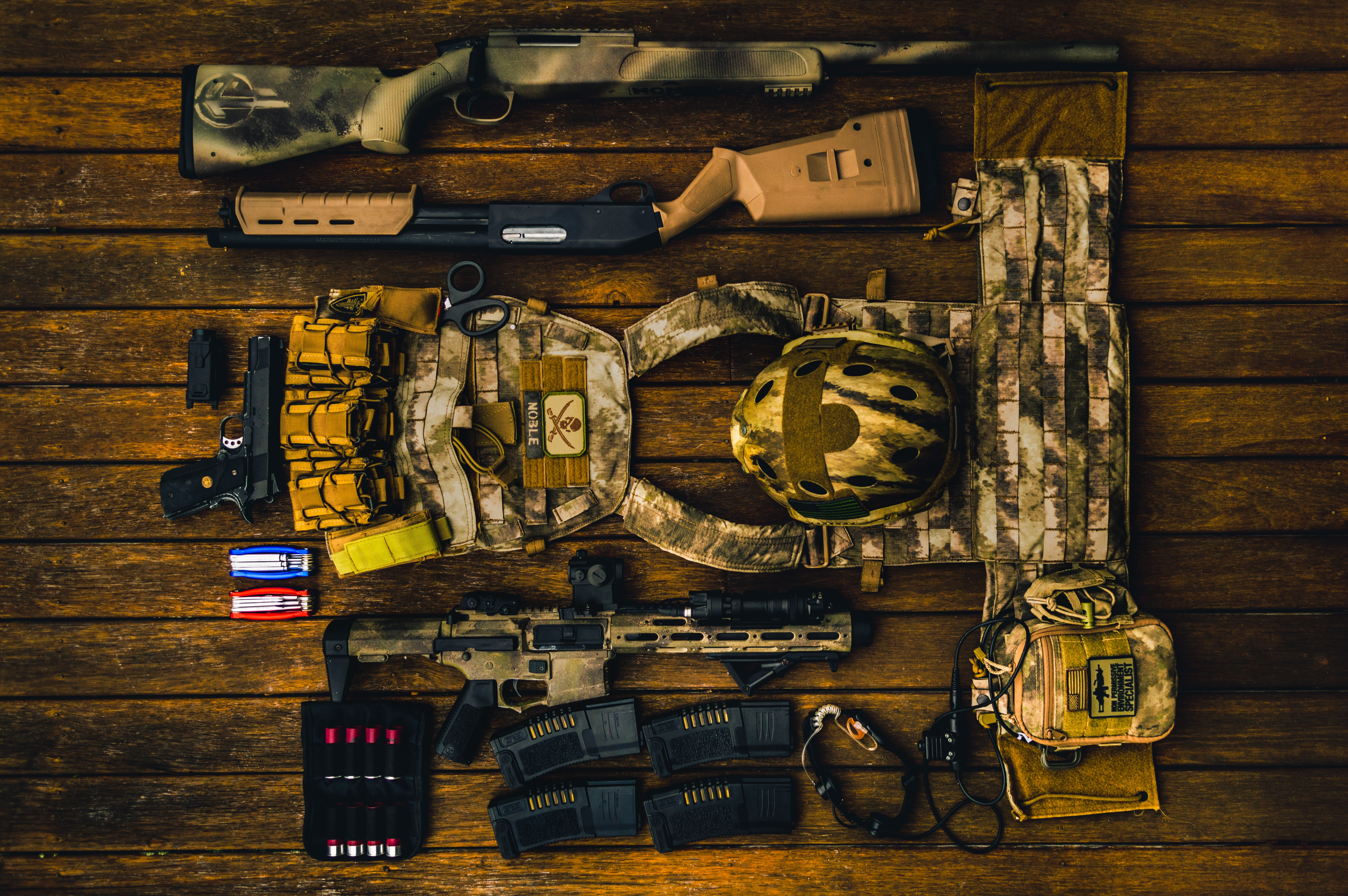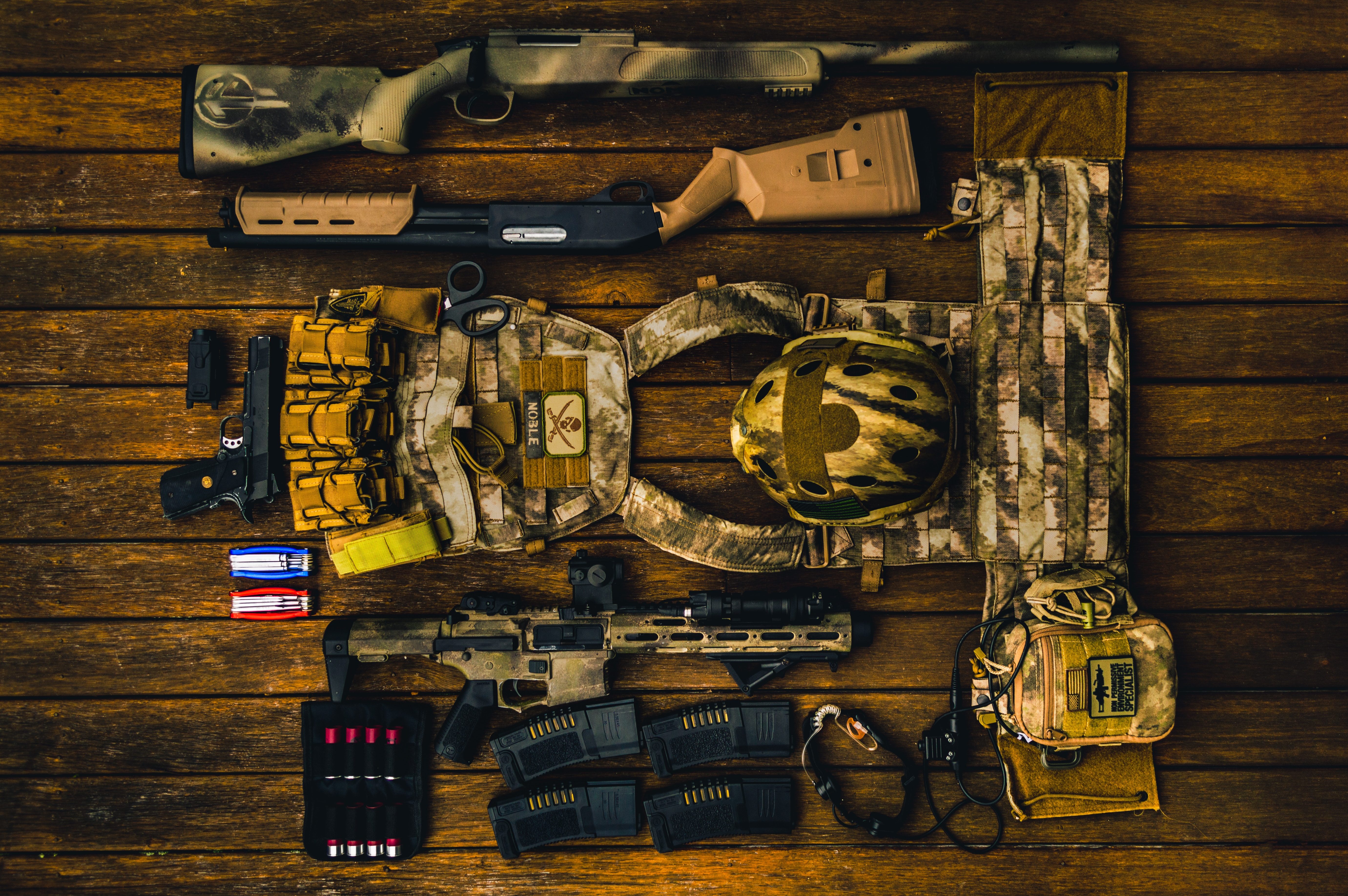





Voice technology in the military is a sensitive subject. Nobody wants to think about how the benevolent tech helping patients track their meds and supporting children with dyslexia may also be aiding deadly attacks in foreign countries.
But if we're to touch on all the fields where voice tech is making a difference, then the military should be no exception. Besides, highlighting the uses of voice in warfare may inspire new ideas on how voice can help the people caught in the midst of it.
We could leverage voice translation to help soldiers communicate with the locals and support medics while they're treating foreign patients.
We could use Natural Language Processing (NLP) to get critical orders from one soldier to another during rescue missions.
We could even embed voice assistants in ships and submarines so units can access information instantly and make life-saving decisions.
Except, all of these scenarios are already underway.
Being deployed around the world means encountering languages you won't always understand. There isn't a stable internet connection for online translators, there's no time to train a voice assistant to recognize your accent and—if you're a first responder—you can forget about using a military-issued touchscreen with your thick-gloved hands.
Fortunately, one voice-first company is on the case.
The SQU.ID SQ 410, a hands-free translator that resembles a rugged walkie-talkie, boasts a library of over 70 languages to help soldiers and medical personnel communicate with the locals. It's screenless, doesn't need to connect to a network (which is handy for disaster zones) and doesn't have to be trained to understand you.
The device is the proud product of Voxtec, a company dedicated to "advancing voice technology in the real world." Their speech-to-speech technology was spurred by the need for instant translation during military operations, so to tailor their solution, Voxtec worked alongside U.S soldiers overseas and observed what these warfighters were up against during mission-critical situations.
The result is a 5.2 inch translator, holstered to the soldier's chest, that quickly picks up what is said, repeats it in the original language to make sure it's correct then broadcasts it in the other person's language in anything from French to Mandarin to Urdu.
Since 2017, the U.S. Army has been equipped with voice-enabled devices so soldiers can easily access important information, consult maps to navigate around landmines, and transmit vital messages.
Before voice, soldiers had smartphone-like devices that were troublesome to use in the heat of battle. You can't exactly tuck your weapons away and remove your gloves to use the on-screen keyboard while bullets are flying over your head. These clunky devices also had to be updated regularly and were reportedly more distracting than helpful.
With voice, soldiers can keep their attention on what's happening on the field while relaying commands and getting the information they need simply by using their voice. Granted, there's the issue of noise (like explosions and gunfire) interrupting their requests, but that's a concern they're already addressing.
Another issue, according to Sputnik, is that voice devices can be a security nightmare. Particularly if outsiders are capable of mimicking the voice of a soldier with permission to order a strike, for example.
As a countermeasure, the device requires biometric authentication—which opens another can of worms since those could also be hacked. They're still working on this one, but there's huge potential to relieve the Army from battling with their devices as well.
On the other side of the pond, the British Royal Navy has taken up voice assistants in an attempt to embrace the technological wave hitting all areas of the military.
Admiral Sir Philip Jones, the first sea lord, explained, “As modern warfare becomes ever faster, and ever more data driven, our greatest asset will be the ability to cut through the deluge of information to think and act decisively.”
Their new Type-31 frigates, scheduled for deployment in 2023, will have touchscreen displays, voice assistants, and even augmented reality to access the ship's data.
While Jones didn't elaborate on what type of questions would be asked of the Royal Navy voice assistant, it could be along the lines of "who was on duty yesterday?" or even "where is the damage?"
There are still a few years to go before British warships have their very own Siri onboard, but it's undoubtedly a step towards advancing the crew's capabilities and enabling better informed decision-making.
These scenarios clearly display a very rosy view of how the military is using voice tech, but the point here isn't to start an ethics debate, it's simply a promising nudge to remind you that voice technology can do so much more good than harm—even in a field as volatile as the military.
From aiding multi-national rescue missions to helping a medic comfort a panicking patient, voice technology has the potential to save thousands of lives. A key point here—for everyone working in voice—is that no matter which industry voice tech permeates, we're partly responsible for ensuring it's used in the right way.
...
To become one of the people pioneering the best use of voice tech now and in the future, join us and thousands of other voice developers, designers, marketers, enthusiasts and entrepreneurs at VOICE. We'll even start you off with a discount to get you in the mood.




.png)

VOICE Copyright © 2018-2022 | All rights reserved: ModevNetwork LLC
